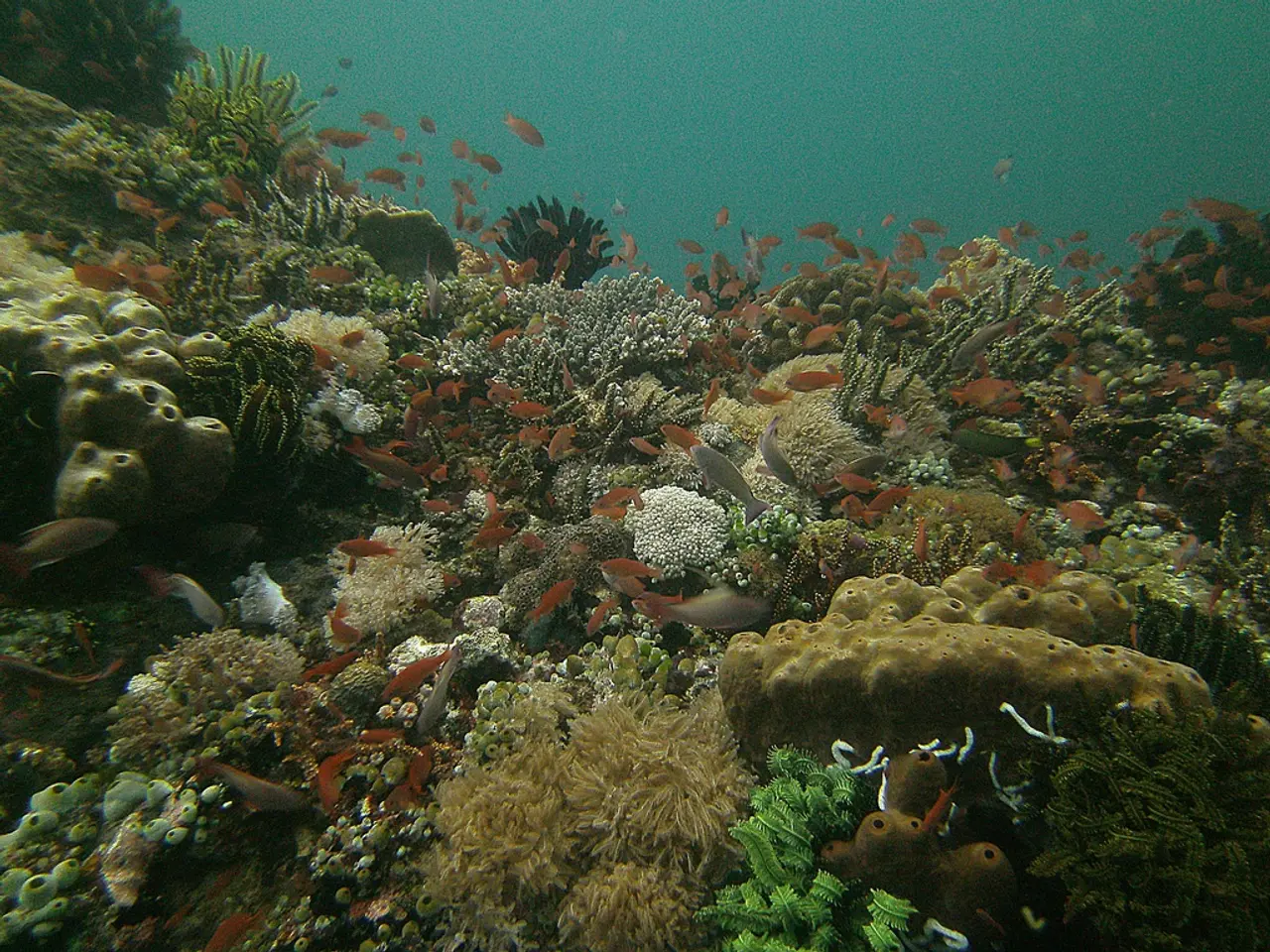Strategies for Marine Conservation: A Comprehensive Guide to Saving Dolphins
In our efforts to combat plastic pollution and safeguard marine ecosystems, a crucial focus has been placed on protecting dolphins. These intelligent and charismatic creatures play a vital role in maintaining balance and biodiversity within the oceans.
Individuals can contribute to this cause by reducing their plastic consumption, diligently recycling, and participating in beach cleanups. By adopting these practices, we can help minimize the threat of plastic pollution to dolphins and other marine life.
Dolphins serve as valuable indicators of ocean health, providing insights into the overall well-being of marine ecosystems. However, they face numerous threats, such as unsustainable fishing practices, underwater noise pollution, and plastic debris.
Unsustainable fishing methods like overfishing, bycatch, and the use of destructive gear pose significant threats to dolphins. To protect dolphin habitats, local fishing regulations prioritizing sustainable practices, such as no-take zones and seasonal fishing closures, are essential.
Governments have a key role to play in this mission. They can enforce fishing quotas, promote the use of dolphin-safe fishing gear, and support research on alternative fishing methods that minimize bycatch. Additionally, governments can establish marine protected areas (MPAs) where noise-generating activities are restricted, implement regulations on vessel traffic, and promote research on the impacts of underwater noise.
Countries such as Germany, Canada, Australia, and Japan, along with the European Union and Scandinavian nations, have taken significant steps to reduce plastic waste and protect marine fauna, including dolphins. Governments can also enact and enforce legislation to limit the production and distribution of plastic items, promote recycling infrastructure, and support research and development of eco-friendly alternatives.
Communities can also take action by organizing awareness campaigns and implementing policies that encourage responsible waste management, including the reduction of single-use plastics. Choosing seafood products certified by organisations like the Marine Stewardship Council (MSC) or the Aquaculture Stewardship Council (ASC) supports sustainable fishing practices.
As apex predators, dolphins help regulate prey populations to prevent ecological imbalances. They also contribute to nutrient cycling by consuming fish and other marine organisms, which helps sustain healthy food chains. Protecting dolphins means safeguarding the habitats and resources they rely on, benefiting the entire oceanic ecosystem.
In conclusion, the preservation of dolphins is crucial for the health of our oceans. By adopting sustainable practices, governments, communities, and individuals can work together to combat plastic pollution, protect dolphins, and ensure the long-term health of our marine ecosystems.
Read also:
- Understanding Hemorrhagic Gastroenteritis: Key Facts
- Stopping Osteoporosis Treatment: Timeline Considerations
- Tobacco industry's suggested changes on a legislative modification are disregarded by health journalists
- Expanded Community Health Involvement by CK Birla Hospitals, Jaipur, Maintained Through Consistent Outreach Programs Across Rajasthan








